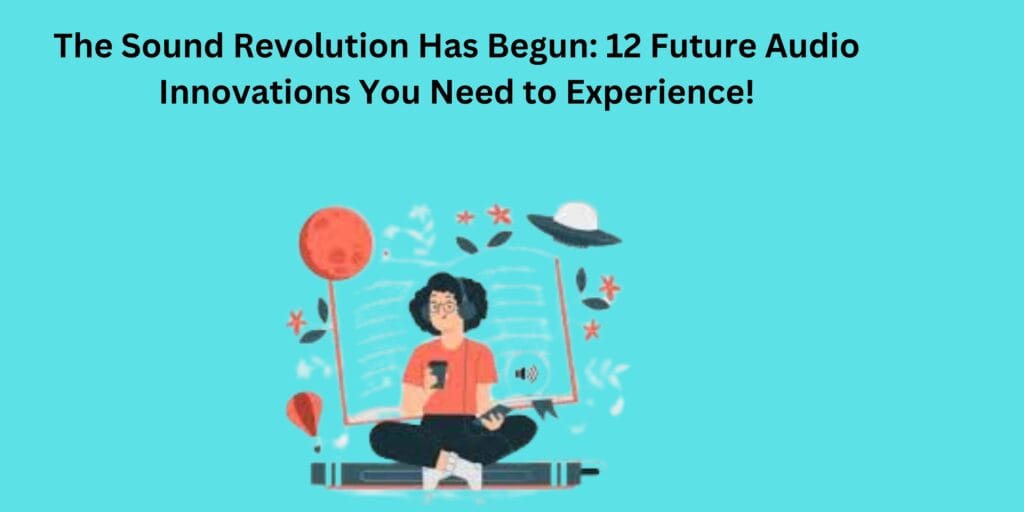As we look towards 2025 and beyond, the role of AI in music is not just a futuristic concept—it’s a present reality reshaping the way we create, produce, and experience music. Tools like Empress are at the forefront of this transformation, empowering musicians and enthusiasts alike by fusing technology with creativity. This article explores the emerging trends and predictions that define the future of AI in music production, revealing how AI tools are not replacing artists but instead amplifying their creative capabilities.

Trend #1: The New Composer’s Assistant
AI as a Collaborative Partner
Artificial intelligence is revolutionizing the music production landscape. Once considered a simple tool, AI has evolved into a powerful collaborative partner. Today, AI-driven music generators and composition tools simplify the music-making process and democratize production—allowing both seasoned professionals and novices to craft soundscapes with ease.
Democratizing Music Production
One of the most significant impacts of AI in music is its ability to break down traditional barriers. In the past, music production was largely reserved for those with access to expensive equipment and professional studios. Now, platforms like Mubert enable users to create personalized soundscapes, regardless of their musical background. This transformation has several key benefits:
- Inclusivity: Anyone can now experiment with music production without needing years of training.
- Affordability: AI tools reduce the financial barriers associated with professional music production.
- Accessibility: With intuitive interfaces, these tools empower users to explore their creativity effortlessly.
Enhancing Creativity and Efficiency
AI isn’t just about making music production more accessible—it’s also about enhancing the creative process. By analyzing vast amounts of musical data, AI tools can:
- Suggest New Ideas: Offer fresh ideas that a human composer might not have considered.
- Accelerate Production: Reduce the time spent on routine tasks such as mixing and mastering.
- Refine Compositions: Identify patterns in successful tracks and help refine musical arrangements.
These capabilities make AI a valuable creative partner, providing artists with endless possibilities for innovation while streamlining the production process.
Read more
The Future of AI in Music Composition
Looking ahead, AI is expected to become even more integral to music composition. As these tools evolve, they will:
- Integrate Seamlessly: Become an indispensable part of digital audio workstations (DAWs) and home studios.
- Expand Accessibility: Continue to democratize music production, making high-quality music creation accessible to all.
- Foster Innovation: Open up new musical territories by blending diverse genres and cultural influences in unprecedented ways.
Trend #2: Social Harmony—Where Music Meets Media
The Shift in Revenue Models
By 2025, social media platforms are projected to overtake traditional streaming services as primary revenue sources for the music industry. This shift highlights a fundamental transformation: the increasing role of digital media in music consumption. Major platforms like Meta, TikTok, and Snap are now central to how audiences discover and engage with music.
The Power of User-Generated Content
Social media has changed the music industry’s economic structure by empowering fans to become creators and promoters. Key points include:
- New Revenue Streams: Collaborations between music labels and social media platforms are now a major source of income.
- Interactive Engagement: User-generated content helps propel songs and artists into the spotlight, fostering viral trends.
- Direct Fan Interaction: Social media enables artists to engage with their audience directly, creating a more personal and interactive experience.
Convergence of Music and Digital Entertainment
The blending of music with other forms of digital entertainment, such as gaming and fitness, is creating new opportunities for both artists and listeners. For example:
- Integrated Experiences: Platforms are combining music streaming with interactive content, allowing fans to enjoy music in a variety of contexts.
- Enhanced Marketing: Partnerships like Sony Music’s with TikTok illustrate how music marketing is evolving, with social media playing a pivotal role in reaching new audiences.
A Blended Model for Music Consumption
The future of music is all about integration. As traditional boundaries blur, a new model for music consumption is emerging—one that seamlessly blends:
- Social Media: Platforms that engage users with interactive, community-driven experiences.
- Streaming Services: High-quality audio streaming combined with personalized content.
- Digital Entertainment: Collaborative efforts between music, gaming, and other media forms to create holistic entertainment experiences.
Trend #3: Blockchain—Fair Play in Music
Smart Contracts for Transparent Royalty Distribution
Blockchain technology is poised to transform the way artists, producers, and songwriters are compensated. In the traditional music industry, a complex chain of intermediaries often leads to delays and disputes in royalty payments. Blockchain offers a streamlined alternative by using smart contracts, which:
- Automate Payments: Automatically distribute royalties according to predefined rules.
- Ensure Fairness: Guarantee that every contributor receives fair compensation.
- Reduce Disputes: Minimize conflicts by providing a tamper-proof record of transactions.
Enhancing Transparency in Music Rights
Blockchain’s transparent ledger system is a game-changer for the music industry. With every transaction recorded on an accessible and verifiable ledger, the technology ensures:
- Clarity: All parties can see exactly how much they are owed and when payments are made.
- Accountability: Reduces the potential for errors or mismanagement in royalty distribution.
- Trust: Builds confidence among artists, producers, and other stakeholders in the financial ecosystem of music.
Engaging Fans in the Creative Process
Beyond financial transactions, blockchain is opening up innovative ways for fans to engage with music. For instance:
- Crowdfunding: Fans can support new projects directly through blockchain-based platforms.
- Voting and Rewards: Listeners might vote on upcoming projects or receive tokens for participating in promotional activities.
- Exclusive Content: Blockchain can enable the sale of limited-edition digital assets or experiences, creating a closer bond between artists and their audience.
Trend #4: Immersive Experiences—Transforming Live Music with VR and AR
A New Era for Live Concerts
Virtual Reality (VR) and Augmented Reality (AR) are ushering in a new era of live music experiences. These technologies are not only transforming how we view concerts but also how we interact with them. Imagine attending a concert from your living room while experiencing a fully immersive digital environment.
Virtual Concerts: Redefining Interaction
Virtual concerts are more than just live streams—they are interactive experiences where:
- Attendees Become Avatars: Fans can navigate virtual venues, interact with other concertgoers, and even participate in live chats.
- Personalized Experiences: Users can choose between solo or social modes, tailoring the experience to their personal preference.
- Innovative Features: Concerts may offer interactive elements such as live polls, real-time visuals, and multi-angle viewing options.
AR Enhancements at Live Venues
Augmented Reality is also enhancing traditional live events. At a live concert, AR can:
- Guide Attendees: Help locate friends, amenities, or merchandise stalls.
- Offer Interactive Elements: Allow fans to engage with on-stage content through their mobile devices.
- Create Immersive Environments: Overlay digital effects onto the physical stage, enriching the live experience.
The Impact of the Pandemic on AR/VR Adoption
The COVID-19 pandemic accelerated the adoption of AR and VR technologies in music. With live events being reimagined, artists turned to virtual platforms to connect with fans. This shift has:
- Opened New Revenue Streams: Virtual concerts have become a viable alternative to in-person events.
- Enhanced Fan Engagement: Artists now have creative ways to interact with their audience remotely.
- Inspired Further Innovation: Continued investment in AR/VR technologies signals a strong future for immersive live experiences.
Trend #5: Personalization at Play—The Rise of Algorithmic DJs
From Static Playlists to Dynamic Experiences
Personalization in music has reached new heights with the advent of algorithmic DJs. Gone are the days when playlists were simple collections of songs based solely on genre or artist preference. Today’s AI-driven systems can curate playlists that consider:
- Mood and Emotion: Matching music to the listener’s current state of mind.
- Contextual Factors: Adjusting recommendations based on the time of day, weather, or activity.
- Individual Tastes: Learning from a user’s listening habits to refine suggestions over time.
Spotify’s AI DJ: A Case Study
Spotify, the world’s leading music streaming service, has been pioneering personalized experiences through its AI DJ. Key features include:
- Personalized Commentary: The AI DJ not only selects tracks but also provides engaging commentary, offering insights about the songs and artists.
- Deep Learning: By analyzing extensive data on listening behaviors, the system continuously improves its recommendations.
- User-Centric Experience: The AI DJ aims to create a relaxed, personalized listening environment that feels uniquely tailored to each user.
AI’s Role in Music Composition and Distribution
AI is also making waves in music composition. Machine learning algorithms are being used to:
- Generate New Musical Ideas: Offering snippets or motifs that artists can incorporate into their compositions.
- Streamline Distribution: Helping music platforms analyze and market tracks more effectively.
- Enhance Listener Engagement: Through personalized recommendations, AI helps connect listeners with music that resonates on a deeper level.
Simplifying Music Creation for Everyone
The beauty of AI in music is its ability to simplify the creative process. Tasks that once required advanced technical knowledge—such as mixing and mastering—can now be handled by AI tools. This means:
- Lower Barriers to Entry: More people can try their hand at music production without a steep learning curve.
- Increased Diversity: A broader range of voices and styles is emerging, enriching the global music landscape.
- Faster Innovation: With AI handling repetitive tasks, artists can devote more time to creative exploration and experimentation.
FAQs
AI tools act as creative collaborators by suggesting new ideas, accelerating the production process, and helping composers refine their work. They make music production more accessible and efficient for everyone.
Social media platforms are transforming music revenue models by integrating user-generated content, fostering direct fan engagement, and creating new marketing opportunities for artists. Collaborations between labels and platforms are now a major income source.
Blockchain technology simplifies the royalty distribution process through smart contracts that automate payments and maintain a transparent ledger. This ensures fair compensation for all contributors in the music creation process.
VR and AR are creating immersive live music experiences by allowing virtual attendance, interactive concert elements, and augmented reality enhancements in traditional venues. These technologies offer new ways for fans to experience and engage with live performances.
Algorithmic DJs use AI to curate playlists that go beyond basic genre preferences. They consider mood, context, and individual listening habits to create dynamic and personalized music experiences. Services like Spotify’s AI DJ are leading the way in this evolution.
Conclusion
The future of music is being rewritten by the convergence of art and technology. AI is not only democratizing music production but also opening up new realms of creativity, distribution, and audience engagement. From the role of the AI composer’s assistant to the transformative power of blockchain, VR, AR, and algorithmic DJs, the landscape of music is evolving at an unprecedented pace.
As we embrace these advancements, it becomes clear that AI in music is far more than just a tool—it’s a collaborative partner that empowers artists to explore new creative horizons. The promise of a more inclusive, efficient, and innovative music industry is now within reach, and it’s reshaping how we create, share, and experience music in our daily lives.
Whether you are a professional musician, an aspiring composer, or simply a music lover eager for new experiences, the integration of AI into music heralds an exciting era of endless possibilities. By breaking down barriers and enhancing creative freedom, AI is ensuring that the future soundscape is richer, more diverse, and more connected than ever before.
Embrace the transformation and let the symphony of AI guide you into a future where every beat, note, and melody is an expression of both technology and human creativity. The journey of innovation in music is just beginning—and the best is yet to come.
